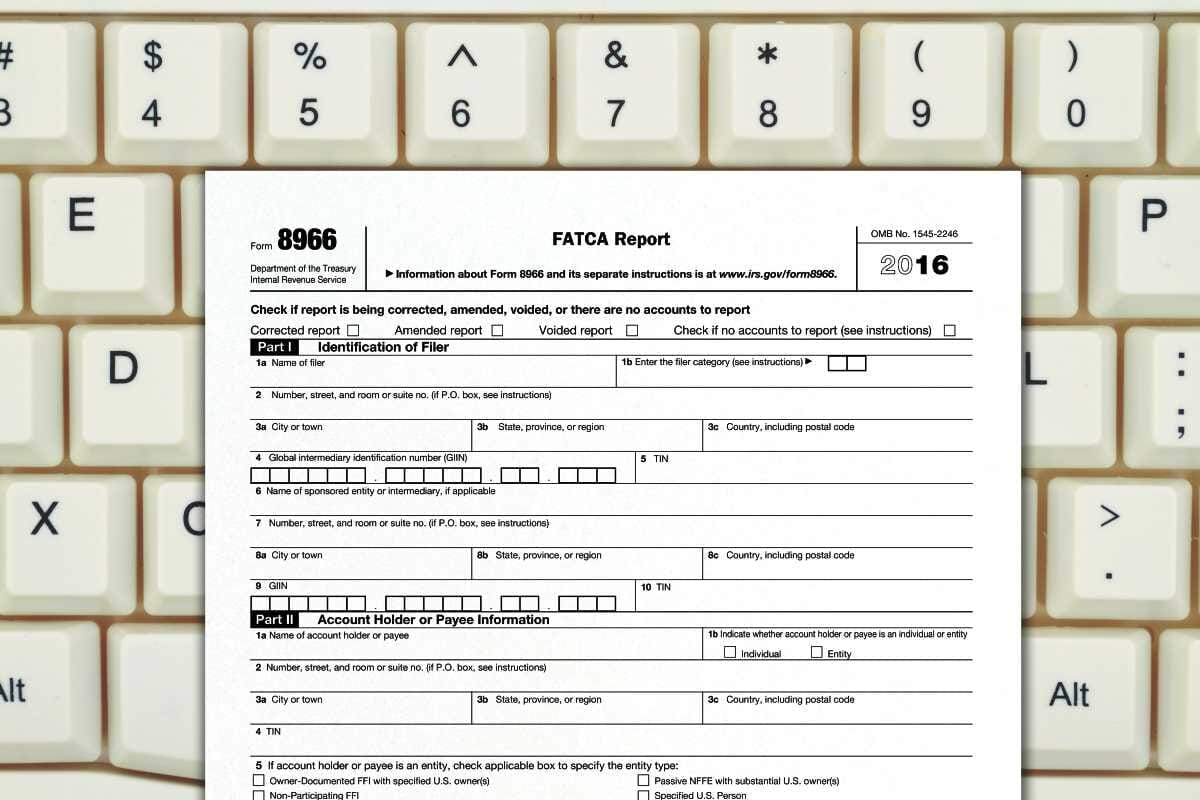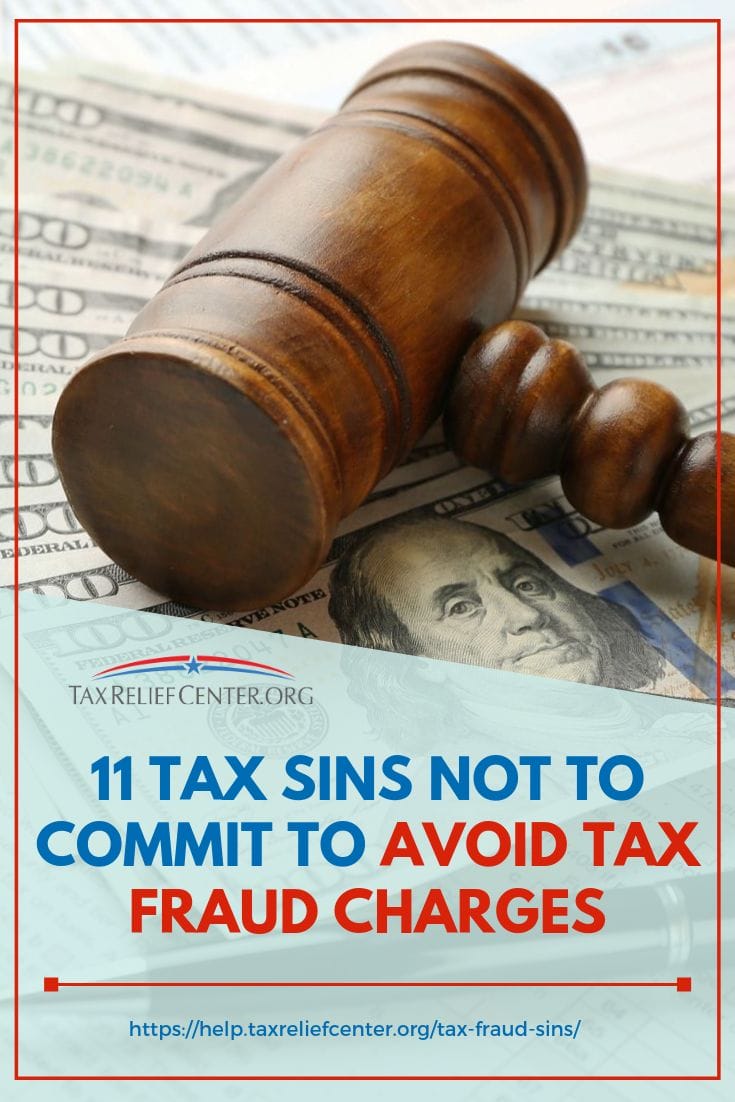Learn about the different aspects of tax fraud and what actions can constitute tax evasion so you can stay in good standing with the IRS.
RELATED: What Is Tax Evasion? Understanding Tax Evasion And How It Works
In this article:
- Not Giving the Correct Figures for One’s Direct Income
- Not Providing and Correctly Reporting All Sources of Indirect Income
- Failure in Being Transparent About Offshore Funds
- Claiming Excessive Deductions
- Blowing Up Professional or Entrepreneurial Expenses
- Improper Use of Meals and Entertainment Taxable Deductions
- Providing Inexact Amounts in Tax Returns
- Falsely Claiming Dependents
- Improper Claiming of Deductions on the Use of Vehicles
- Giving a Poor Picture of One’s Business
- Unjust Earnings from Corporate Investors
What To Know About Tax Fraud To Steer Clear of Trouble
What Is Tax Fraud?
Tax fraud, also known as tax evasion, involves the act of giving false information in a tax return to avoid paying the correct amount of tax.
Section 7201 of the Internal Revenue Code classifies tax fraud into two separate offenses:
A. The willful attempt to evade or defeat the assessment of a tax
B. The willful attempt to evade or defeat the payment of a tax
Based on that information, the IRS can charge a person with tax fraud if they don’t give the correct information on their returns (assessment) or don’t pay the correct amount (payment) for their tax liability.
Tax Fraud Vs. Tax Avoidance
To best understand what tax fraud is, we need to understand how it differs from tax avoidance.
Tax avoidance involves using legal means to reduce the amount of taxes one needs to pay. This often involves claiming personal exemptions, minimizing one’s taxable income, making use of tax credits and deductions, among others.
Tax fraud involves lies and deceit in order to reduce the amount of taxes one has to pay. Cases of tax fraud usually involve filing false tax returns, understating income to avoid the correct assessment of taxes, or not stating all sources of one’s income.
Civil Tax Fraud Vs. Criminal Tax Fraud
When the IRS takes alleged tax offenders to court, the service charges them with either civil tax fraud, criminal tax fraud, or both. Civil tax fraud and criminal tax fraud differ in the burden of proof the IRS needs to show in the trial and the tax evasion penalties involved.
For civil tax fraud cases, the IRS needs to present “clear and convincing” evidence to win. In criminal tax fraud cases, the IRS has to prove “beyond a reasonable doubt” that the party is guilty of the charge.
The law only gives monetary penalties to proven civil tax fraud offenders. For example, the court will ask the guilty party to pay 75% of the underpaid amount as penalty.
Criminal tax fraud penalties are harsher. They involve up to five years of imprisonment and fines amounting to $25,000 for persons and up to $100,000 for corporations.
In some instances, the IRS opts to file either a criminal tax fraud case after a civil tax fraud case or vice-versa. If the IRS wins both cases, guilty parties usually end up paying tax evasion penalties and facing imprisonment.
After learning about tax fraud, it’s time to understand what acts may constitute this particular charge attracting an IRS criminal investigation.
11 Tax Sins That Trigger Tax Investigations
1. Not Giving the Correct Figures for One’s Direct Income
When someone receives payment for work they performed, they need to report the exact payment.
This shouldn’t be a problem for employees, but it’s totally different for self-employed professionals or freelancers with different side jobs aside from a main job.
These individuals must take account of all the income they earned through their services and report these earnings using the right IRS forms, say, a 1099-K for earnings from credit card charges. Whenever these people profit from their enterprises or side jobs, they need to account for it with the right forms and submit these forms to the IRS.
The IRS already tracks these forms from parties these professionals contract with, so it’s not a good idea trying to keep earnings a secret.
2. Not Providing and Correctly Reporting All Sources of Indirect Income
Individuals who earn indirect income from their investments need to report their earnings using tax forms like the 1099-INT. Another example: Investors who receive unearned income from real estate investments need to declare them using the 1120-REIT forms.
1099-INT Definition: A kind of IRS form that payers of interest income provide to anyone whom they paid at least $10 worth of interest income in a given year.
3. Failure in Being Transparent About Offshore Funds

The Foreign Account Tax Compliance Act (FATCA) and the Foreign Bank Account Report (FBAR) force owners to disclose their offshore accounts or risk facing penalties as high as $10,000 per year for each hidden account.
It’s no longer easy for an individual to hide bank accounts overseas, since foreign banks now report investment income and interest to the IRS.
4. Claiming Excessive Deductions
Tax law provides exemptions and relief in certain instances, but individuals should avoid inflating or overstating their deductions.
The IRS already tracks the average amount one can gain from exemptions or deductions using computers. One skewed number, in the number of charitable deductions and the absence of documentation, for example, will warrant an IRS investigation.
5. Blowing Up Professional or Entrepreneurial Expenses
Professionals and entrepreneurs may sometimes be tempted to give incorrect numbers in particular line items like advertising, business vehicle, etc. in their tax returns, to pay less self-employment tax. This doesn’t work all the time and any obvious irregularities can result in IRS agents knocking on the doors of these individuals.
6. Improper Use of Meals and Entertainment Taxable Deductions

If there’s a conflict of interest when thinking of charging a trip or a meal as a business expense, it’s better to not to seek a deduction for it. An entrepreneur seeking deductions for a trip to the Bahamas with his family and claiming it as a business trip will end up in trouble with the IRS.
RELATED: 9 Celebrity Tax Evaders
7. Providing Inexact Amounts in Tax Returns
It’s best to provide the exact amounts when filling up tax returns, even if rounding them up is more convenient. This way, the IRS doesn’t misconstrue the entries as false reporting.
8. Falsely Claiming Dependents
Dependents give a taxpayer some deductions, so some individuals choose to list people with vague relationships to them on their returns. This is a bad idea, as the IRS tracks the names of people who’ve appeared in taxpayers’ returns over the years.
9. Improper Claiming of Deductions on the Use of Vehicles

A business use vehicle must primarily be used for business activities. An entrepreneur who uses his car for personal reasons 90% of the time cannot seek deductions for his vehicle this way.
10. Giving a Poor Picture of One’s Business
When an entrepreneur does not report a profit for his for-profit business, the IRS takes notice and investigates. Businesses like this are sketchy and invite scrutiny from the law.
11. Unjust Earnings from Corporate Investors
Some individuals sluice off investment earnings and report it as a service fee or commission earned from a company’s investors.
The IRS will investigate if the services these individuals performed are indeed equal to the value of the work they did. If it’s bigger, then the IRS may opt to file tax fraud charges on these persons.
Filing taxes is complicated enough as it is without having to be involved in tax fraud. Tax errors shouldn’t land people in prison if they were knowledgeable about the legalities of tax evasion.
Through this article, the Tax Relief Center hopes to educate its readers about what tax fraud is and the actions that entail tax fraud, so people can avoid paying for costly, honest mistakes with hefty fines or prison time.
Do you have other tips to share to avoid tax fraud charges? Share them with us in the comments section below!
If you owe back taxes, visit taxreliefcenter.org for more information on tax relief options.
Up Next:
- IRS Letter 4464C | What It Means
- How to Track Your State Refund
- Failure To File Penalty: 9 Facts You Should Know


